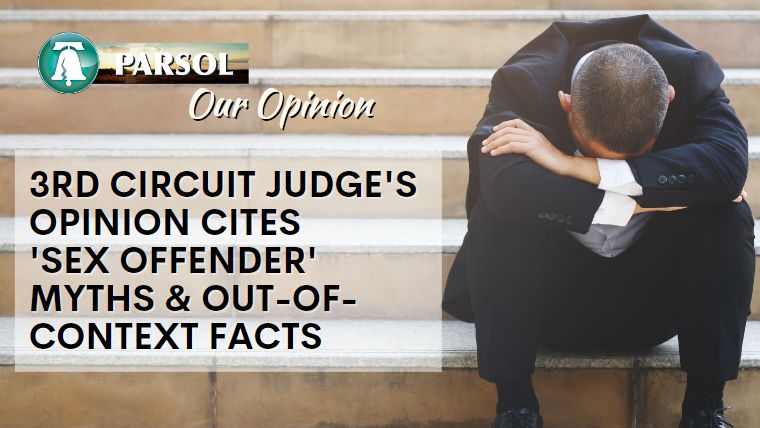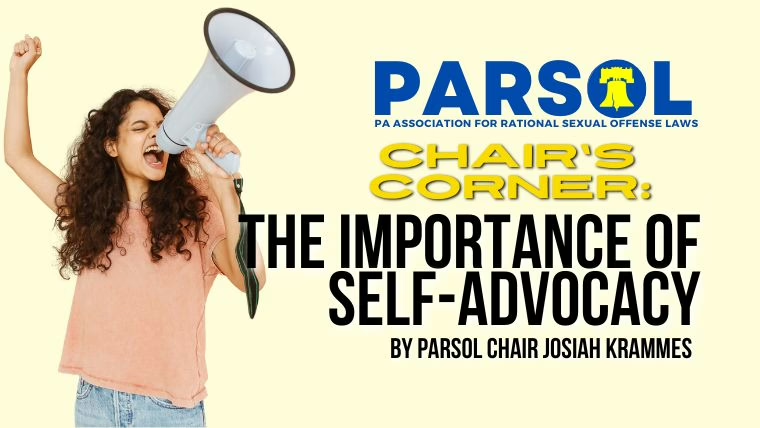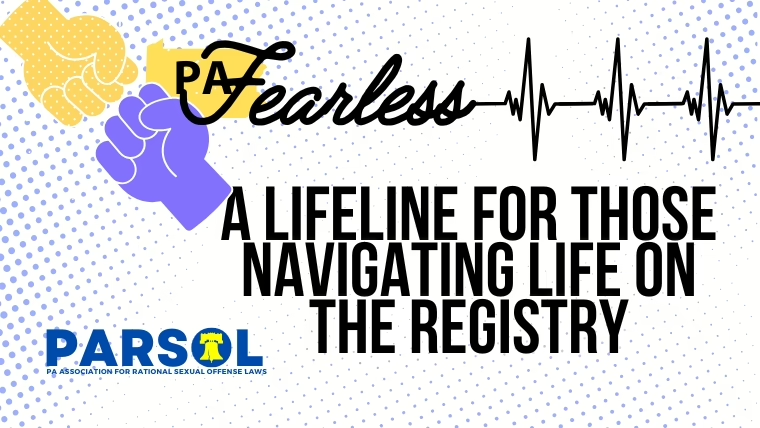SHAME! SHAME! Judge David Porter for the U.S. 3rd Circuit Court has recently published an opinion on Lacey Stradford; et al (appellees). v. Secretary of Pennsylvania Department of Corrections. The Appellees challenged the Dept. of Corrections (DOC) policy on how they determine which parolees can be released to a halfway house based on that it violates the Fourteenth Amendment’s Equal Protection Clause. The DOC policy consists of 13 criteria the Parole Board needs to examine. The first of the criteria is “community sensitivity to a criminal offense or specific criminal incident.” Judge Porter ruled the policy does not violate the Fourteenth Amendment as it is the Parole Board’s responsibility to protect the citizens of Pennsylvania as individuals who commit a sexual offense pose a high risk to the safety of the communities.
The Parole Board counter-argued individuals convicted of a sexual offense are harder to find housing for because of the public’s perception of such offenses, “notification requirement makes it difficult to place sex offenders into community halfway houses because once neighbors are notified, some oppose sex offenders’ presence. In at least one instance, community backlash against high concentrations of sex offenders in neighboring halfway houses caused a halfway house to close,” (Opinion pg. 6).
“For the same reasons it is hard to place sex offenders into halfway houses, sex offenders once placed tend to linger in halfway houses longer than other parolees. Potential landlords can use an applicant’s sex offender status to refuse leasing to them, and many sex offenders cannot obtain federally funded housing. See 42 U.S.C. § 13663(a); 24 C.F.R. § 5.856,” (Opinion pg.6). This is true. However, it doesn’t help when any court continues to believe and spread a false narrative.
The Court’s whole opinion is based on the Myth, the purpose of registries, and the collateral consequences that stem from public notification systems. Judges are to rely on facts! This Judge did use facts but misconstrued them. Here’s what he said on page 17, “[t]hese fears are not based on mere animus or unfounded prejudice. ‘Half of prisoners released after serving time for rape or sexual assault had an arrest within 9 years that led to a conviction.’ U.S. Department of Justice, Bureau of Justice Statistics, Recidivism of Sex Offenders Released from State Prison: A 9-Year Follow-Up (2005-2014) 6 (2019) (https://bjs.ojp.gov/library/publications/recidivism-sex-offenders-released-state-prison-9-year-follow-2005-14, last visited September 14, 2022).” The quote is only a heading for the next few paragraphs. The actual full paragraph from which the heading is based is:
Sex offenders were less likely than all prisoners released in 2005 to have had a new arrest that resulted in a conviction after release. During the first 3 years after release, 28% of prisoners released after serving time for rape or sexual assault had a new arrest that led to a conviction, compared to 49% of all prisoners. At the end of the 9-year follow-up period, 50% of prisoners released after serving time for rape or sexual assault had a new arrest that led to a conviction, compared to 69% of all prisoners.
That paragraph is on the same page as the heading and only two paragraphs down. Judge Porter should be highly ashamed of himself for such carelessness in setting a reckless precedent ruling. I would argue before the U.S. Supreme Court that this is a harmful error and is grounds for a reversal. The data in the above-mentioned study as well as many other studies show that individuals with sexual offenses have very, very low recidivism rates. We have compiled a fact sheet on the studies showing this low recidivism.
To top it all off, we even have a case now before the Supreme Court of Pennsylvania that has argued against the myth of “frightening and high”. The case of Commonwealth v. Torsilieri has garnished national attention for its use of research in busting this myth. The Chester County Court of Common Pleas has TWICE agreed with Mr. Torsilieri. Either Judge Porter is unaware of this case or is blinded by his own prejudices so much so that he would take a headline out of context without reading on. The whole opinion is atrocious and puts the 3rd Circuit Court to shame!
PARSOL is calling on everyone who is impacted by the Myth, irrational laws, and irrational court opinions to share our Recidivism Fact Sheet with your friends, neighbors, coworkers, and anyone else you come across. It is up to all of us to change the narrative within our communities.




